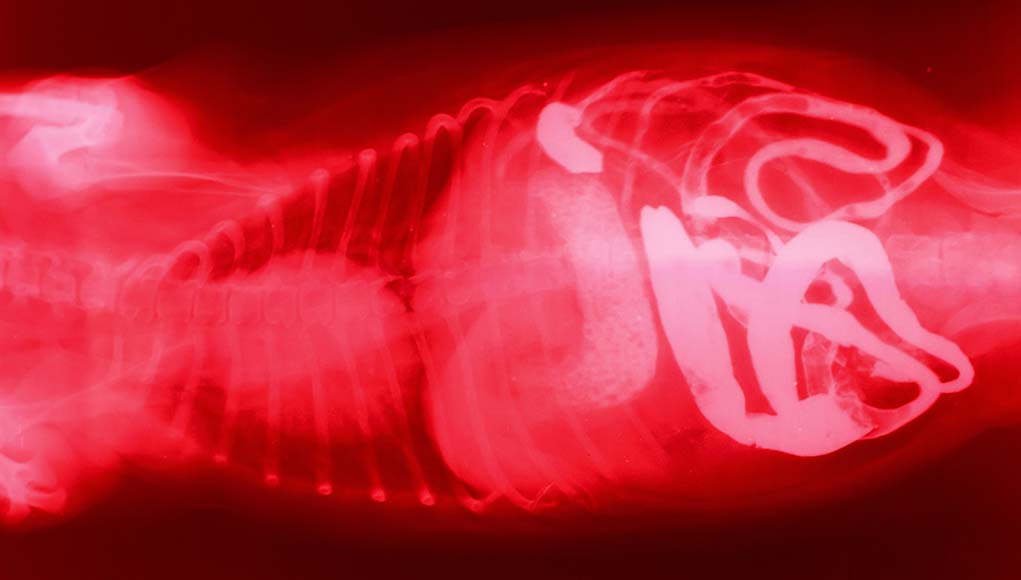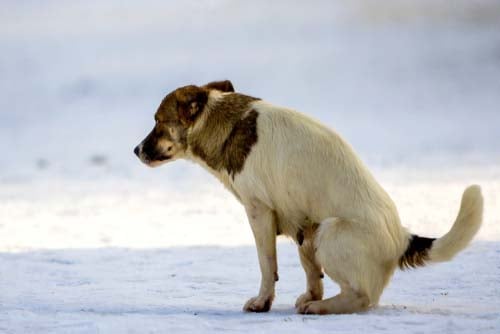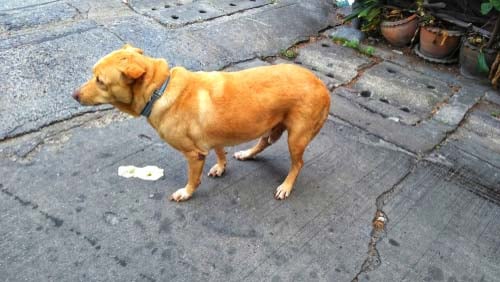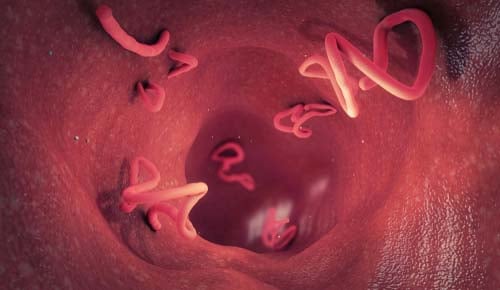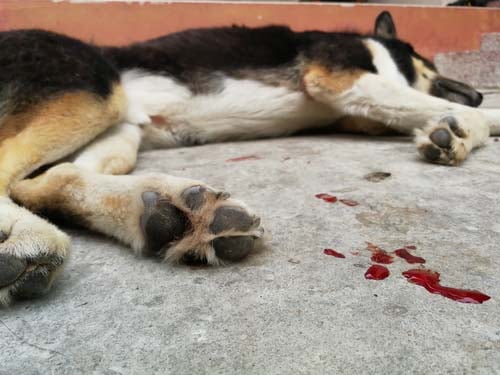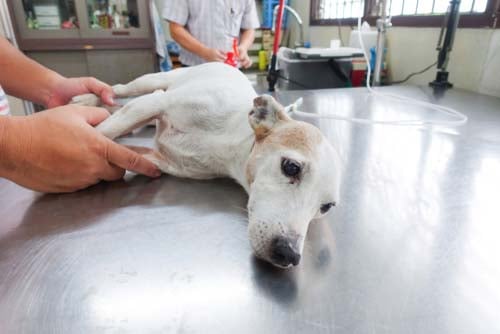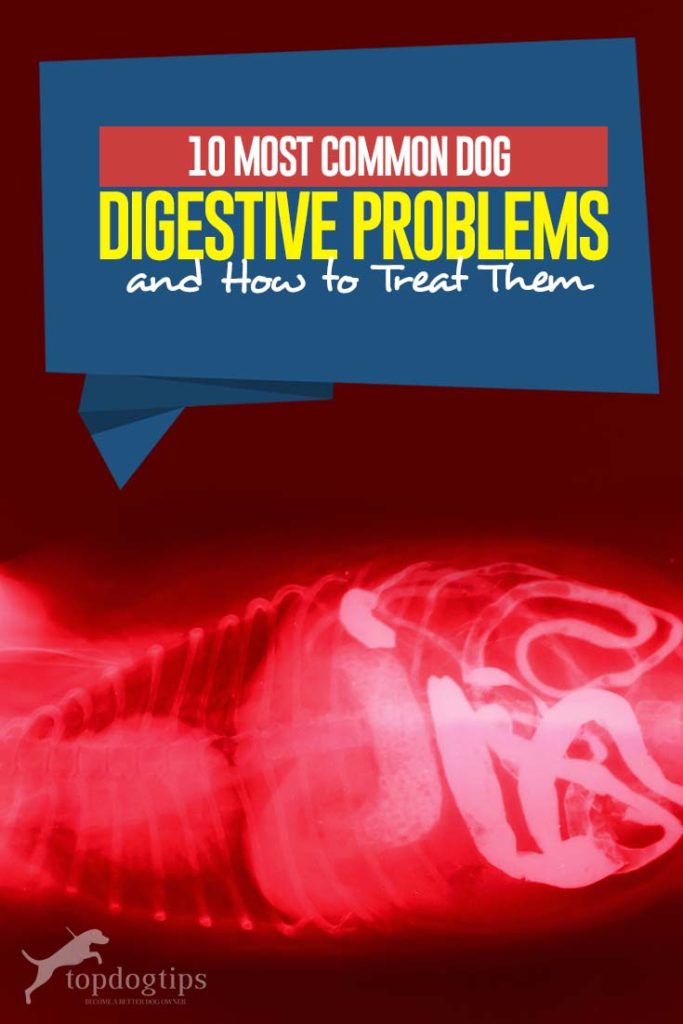Dog digestive problems are one of the most common ailments. A “digestive disorder” or disease is anything that occurs in a dog’s stomach and/or intestines, and even though they are usually not serious, some of the digestive problems in dogs can in fact be life-threatening.
Table of Contents
Fortunately, most digestive issues can be prevented. Typically, majority of them are also fairly easy to treat at home if you know what to look for and what exactly to do. So before we look at some common dog digestive problems, let’s first talk about what you can do to avoid them in the first place.
How to Prevent Dog Digestive Problems?
Prevention of digestive problems in dogs is easy and simple, and mostly consists of a healthy diet, good hydration and regular exercise. Other than being a caring, attentive and informed pet owner who knows a dog's digestive system, there are a few other things you can do to minimize the risk of your pooch developing digestive problems, such as:
- Vaccinating your dog
- Give your pooch preventive medicine if you live in a parasite-infested area
- Keep your dog’s living area clean
- Don’t let them eat feces, garbage and spoiled food (use pet proof trash cans)
- Don’t let your dog drink standing water, or water after heavy rainfall
- Don’t make sudden changes to your dog’s diet
- Ensure the dog gets enough exercise and playtime
- Try to keep your pet away from stress (noises, routine changes, etc.)
- Make sure that your dog maintains a healthy weight
These are some of the most basic and self-explanatory precautions you can take, and in majority of cases, this will be enough to avoid digestive issues in dogs. However, accidents do happen, so below is a brief on the ten most common dog digestive problems you may have to deal with and what you should do in those instances.
RELATED: The Best Digestive Aids for Dogs
10 Most Common Dog Digestive Problems
1. Diarrhea
While diarrhea is often a symptom of a number of specific digestive problems, it can also stand on its own. It is usually caused by the ingestion of bad/spoiled food, dirty water and foreign objects. Even a simple diet change that hasn't been done properly can lead to diarrhea in dogs.
Diarrhea can also be a side-effect of some medication not agreeing with your pet's stomach, or a symptom of stress. Allergic reactions (both food and environmental) are sometimes followed by diarrhea as well.
How to treat diarrhea in dogs:
Diarrhea treatment is all about the diet. When your pup gets it, let him fast at first before feeding. Then feed your pooch a bland diet so you don’t irritate his digestive system further. Boiled chicken or turkey with some rice is the safest way to go.
Hydration is a very important part of diarrhea treatment to avoid dehydration, so after a brief fasting period, encourage your dog to drink plenty of water. You can also give him some bone broth.
Dog's diarrhea shouldn’t last more than a couple of days. If it does, that means there's a more serious underlying health issue; take him to the vet to determine the cause and get the appropriate therapy.

2. Constipation
Constipation is a complete inability for the dog to defecate, or passing hard and dry stools. Constipation in dogs is usually caused by the lack of fiber in a dog’s diet, as well as lack of exercise. Some other causes include dehydration, side effects of certain medications, enlarged prostate glands and ingestion of foreign objects and inedible things.
How to treat constipation in dogs:
Short-term solutions include laxatives and stool softeners available over the counter. Certain medications to improve contractions of the dog's large intestine may need to be given, but only if prescribed by your vet. An enema may also be recommended in some situations.
Increasing fiber intake in your dog’s diet with high fiber foods and providing more exercise are the best and proven long-term solutions to treat your pet's constipation issue.
3. Vomiting
Vomiting is another common dog digestive problem that's usually caused by simply overeating or eating something that your pooch can’t digest. Sudden diet changes can also be the reason behind it, as well as a bad reaction to certain medications.
However, vomiting can also be a symptom of another digestive issue and a trip to the vet is necessary if your pet's vomiting lasts for more than two days or if it is accompanied by other noticeable health problems and symptoms.
How to treat vomiting in dogs:
To get your dog to stop vomiting, after a brief period of fasting, feed him a bland diet that includes foods that won't irritate his digestive system. For example, boiled rice, potatoes and skinless chicken breast or turkey. Make sure that your pooch drinks plenty of water because vomiting can quickly make him dehydrated. When vomiting lasts longer than 1-2 days, your vet must be contacted and they may prescribe antibiotics if needed.
4. Infections
Viral, bacterial and parasitic infections can all lead to different dog digestive problems. Some of the most common are:
Viral Infections – While viruses like canine distemper and canine parvovirus are preventable with vaccination, they still affect many unvaccinated dogs. Viruses are transmitted by feces or by direct contact with an infected dog or other animals, and they often cause digestive issues among other symptoms.
Bacterial Infections – The most common bacterial infections that affect a dog’s digestive system include Salmonella, E.coli and Helicobacter. These infections are usually caused by contaminated feces, water, dairy and meat. Dogs with weaker immune systems, like senior dogs and puppies, are more likely to get a bacterial infection and have more serious, complicated symptoms.
Parasitic Infections – Intestinal parasites like tapeworms, hookworms, roundworms and Giardia often attack a dog’s GI tract. They are found in stagnant water sources, feces and contaminated food sources like meat and dairy.
Symptoms of these and other infections can vary depending on the specific cause, but they often include diarrhea, vomiting, mucus in stool and weight loss, and even a combination of all of these.
How to treat infections in dogs:
Treatment will depend on the specific cause of the infection, which can only be determined by your veterinarian. For example, viral infections, especially canine parvovirus, may require hospitalization as they are life-threatening. Therapy includes administration of anti-nausea medication and IV fluids, with antibiotics added to prevent secondary infections.
Similarly, parasitic infections are treated with antibiotics and other medications, depending on the type of parasites. Treatment for bacterial infections also includes antibiotics and diet changes. Note that when dealing with any of these infections, a trip to the vet is necessary to get the appropriate treatment for the specific type of bacteria. Do not attempt to diagnose and treat these at home.
5. Colitis
Colitis, or inflammation of the animal's large intestine or colon, is a very common dog digestive issue. It is often caused by bacteria or parasites (as noted above), trauma and/or stress. In some cases, it is caused by eating contaminated food or bad/spoiled food and garbage.
The primary symptom of colitis in dogs is diarrhea, sometimes with blood in it. Other symptoms include mucus in stool, vomiting and straining with bowel movement.
How to treat colitis in dogs:
Managing the underlying cause is a common way to treat colitis. For example, colitis caused by bacteria is treated with antibiotics and a highly-digestible diet, and only after consulting with a veterinarian.
If the cause is unknown, your vet may prescribe fasting for a couple of days, followed by a low-residue diet and an increase in fiber intake. Gluten sensitivity is uncommon in dogs but gluten or some other specific food item/ingredient could be the cause of colitis, in which case your vet will recommend to do an elimination diet after treatment.
6. Inflammatory Bowel Disease
Inflammatory bowel disease (IBD) is a medical term for a group of dog digestive problems characterized by similar symptoms, especially inflammation that occurs without a known cause. Other symptoms of IBD in dogs include vomiting, weight loss and diarrhea.
IBD is not the same as Inflammatory Bowel Syndrome (IBS), and the two are related but different GI related health issues. IBD is especially hard to diagnose because the symptoms mimic many other digestive problems, including IBS. That means that your vet must first rule out other potential conditions before ordering a biopsy to confirm the diagnosis of IBD.
How to treat IBD in dogs:
IBD cannot be cured or treated out of your pet's system, but after consulting with your vet and developing a therapy plan, you can help your pooch manage this problem with medications and diet changes and make their life more comfortable.
7. Gastrointestinal Ulcers
Gastrointestinal ulcers in dogs are categorized as sores or lesions that show up on their stomach lining. Common symptoms include decreased appetite, general weakness and pain in the stomach. Some dogs may also suffer from diarrhea or vomiting.
The most prominent causes of a dog's stomach ulcers include allergies, stress, ingesting foreign objects and bacterial or viral infections.
How to treat gastrointestinal ulcers in dogs:
The severity of the GI ulcers affects the recommended therapy. Ulcers that perforate the animal's stomach wall have to be treated with surgery. Sometimes IV fluids are needed if the dog becomes dehydrated due to diarrhea and/or vomiting.
In mild cases, dietary changes that include bland food or foods specifically for GI problems can be enough. Some cases may require administration of certain antacid medications. Natural home remedies like licorice root, aloe vera and alfalfa can also help according to anecdotal evidence.
8. Malabsorption
Malabsorption is a term that describes poor absorption of certain nutrients. In most cases, malabsorption in dogs is caused by the lack of some pancreatic enzymes. Another common cause is the small intestinal disease.
Changes in appetite, weight loss and diarrhea are some of the most common signs of malabsorption. Some dogs also suffer from fluid retention, dehydration or anemia.
How to treat malabsorption in dogs:
Dietary changes recommended by your vet are the usual way to deal with malabsorption, especially if the cause can be identified. For instance, if a mild case of malabsorption is caused by the lack of certain enzymes in the animal's pancreas, adding enzyme supplements to your dog’s diet can help.
9. Gastroenteritis
This condition is an inflammation of the GI tract, especially the stomach and intestines. Gastroenteritis in dogs is typically caused by an infection, whether it is viral, parasitic or bacterial. However, it can also occur as a side-effect of some medications or as an adverse reaction to a diet change or ingestion of spoiled/bad foods.
Gastroenteritis is characterized by intermittent episodes of vomiting and diarrhea, which leads to dehydration. Most dogs will also have a decreased appetite and appear lethargic.
How to treat gastroenteritis in dogs:
Rehydration and restoring the balance of blood electrolytes is the primary goal of dog's gastroenteritis therapy. This is achieved either by oral fluid replacement or with IV treatment, depending on the severity of dehydration and as recommended by your vet.
Some cases will also require medication with antibiotics and anti-diarrhea or anti-vomiting drugs. Your vet may also prescribe gastrointestinal protectants to prevent stomach ulcers and further digestive complications from occurring.
10. Canine Bloat
Bloat in dogs is a very serious condition, which can even be fatal without immediate medical attention. Canine bloat, or gastric dilation and volvulus (GDV), is a condition in which the dog’s stomach fills with gas and twists.
Unfortunately, this condition is not well understood yet and the exact causes are unknown but some speculations do exist. Big dogs with deep chests are more likely to suffer from it. Elevated food bowls may cause bloating as well (ironically, they were developed to prevent bloat). Some of the symptoms include drooling, retching without vomiting and a swollen belly that’s hard on touch.
How to treat bloat in dogs:
This condition cannot be treated at home. If you notice any of the symptoms, get your dog to the vet immediately. Bloat can be fatal in a matter of hours if left untreated.
Therapy for GDV in dogs includes releasing gas from the stomach and administration of intravenous fluids. Surgery usually follows as soon as the dog is stable in order to remove any damaged tissue and prevent additional attacks.
In Summary
Digestion problems in dogs are very common, and in most cases are quick and easy to treat. Most pet parents will have to deal with one or several dog digestion problems over the course of their animal's lifespan.
Some of the above discussed conditions do not require a visit to the vet, but others can be more serious and even life-threatening. Also, if symptoms of your pet's digestive issues last for more than a couple of days, take your dog to the vet no matter what to determine the exact cause and get appropriate treatment.
READ NEXT: The Best Dog Food for Dogs with Sensitive Stomachs


